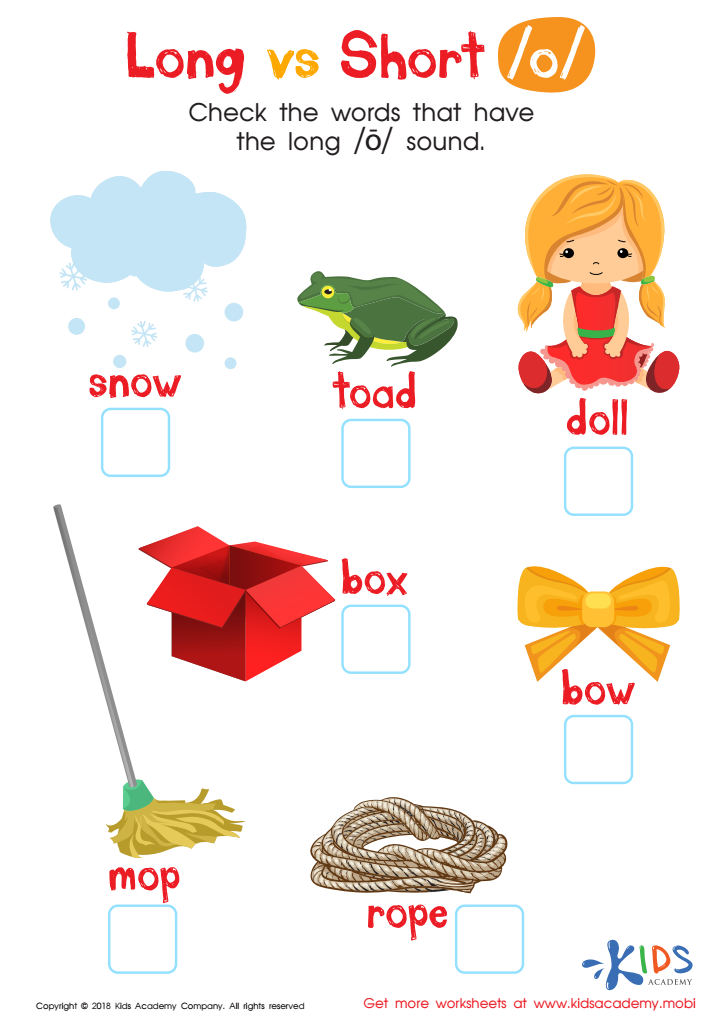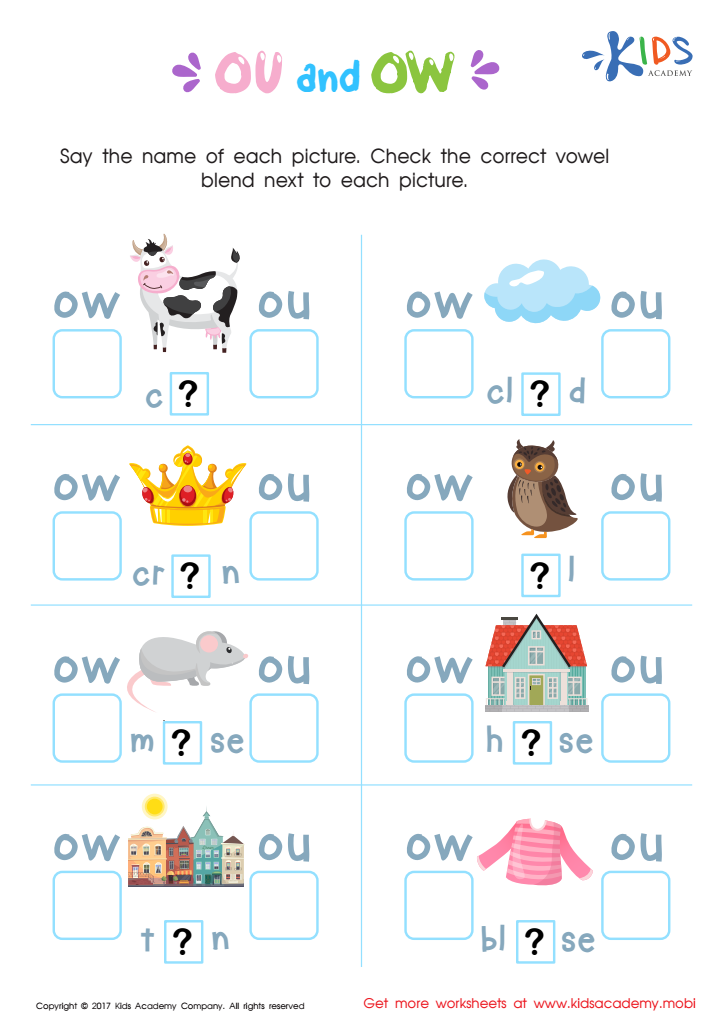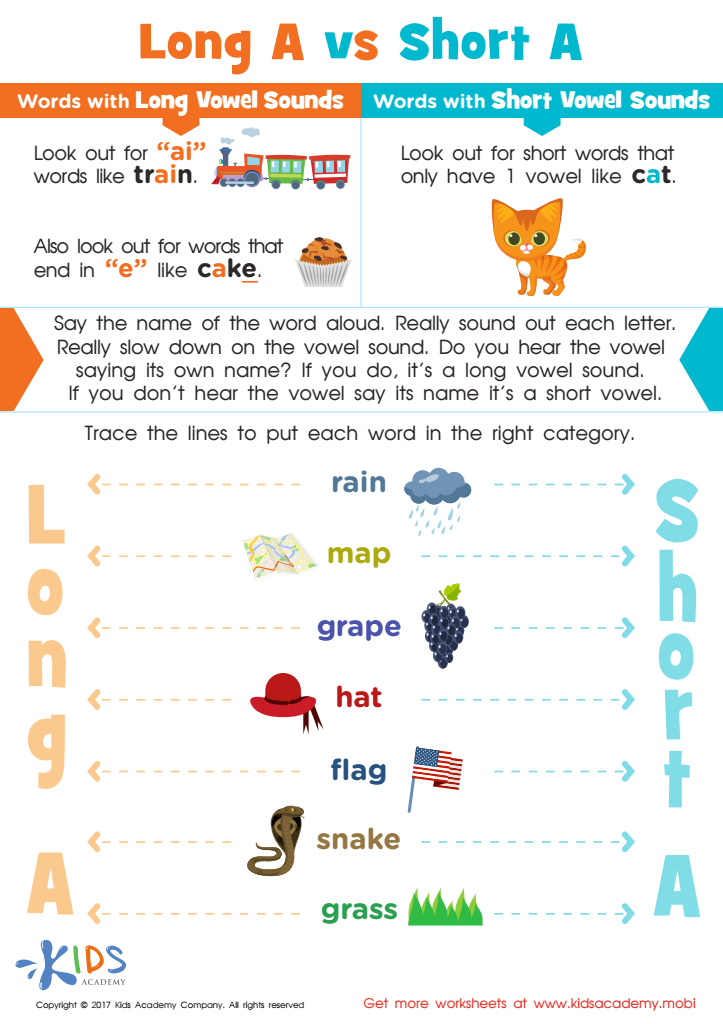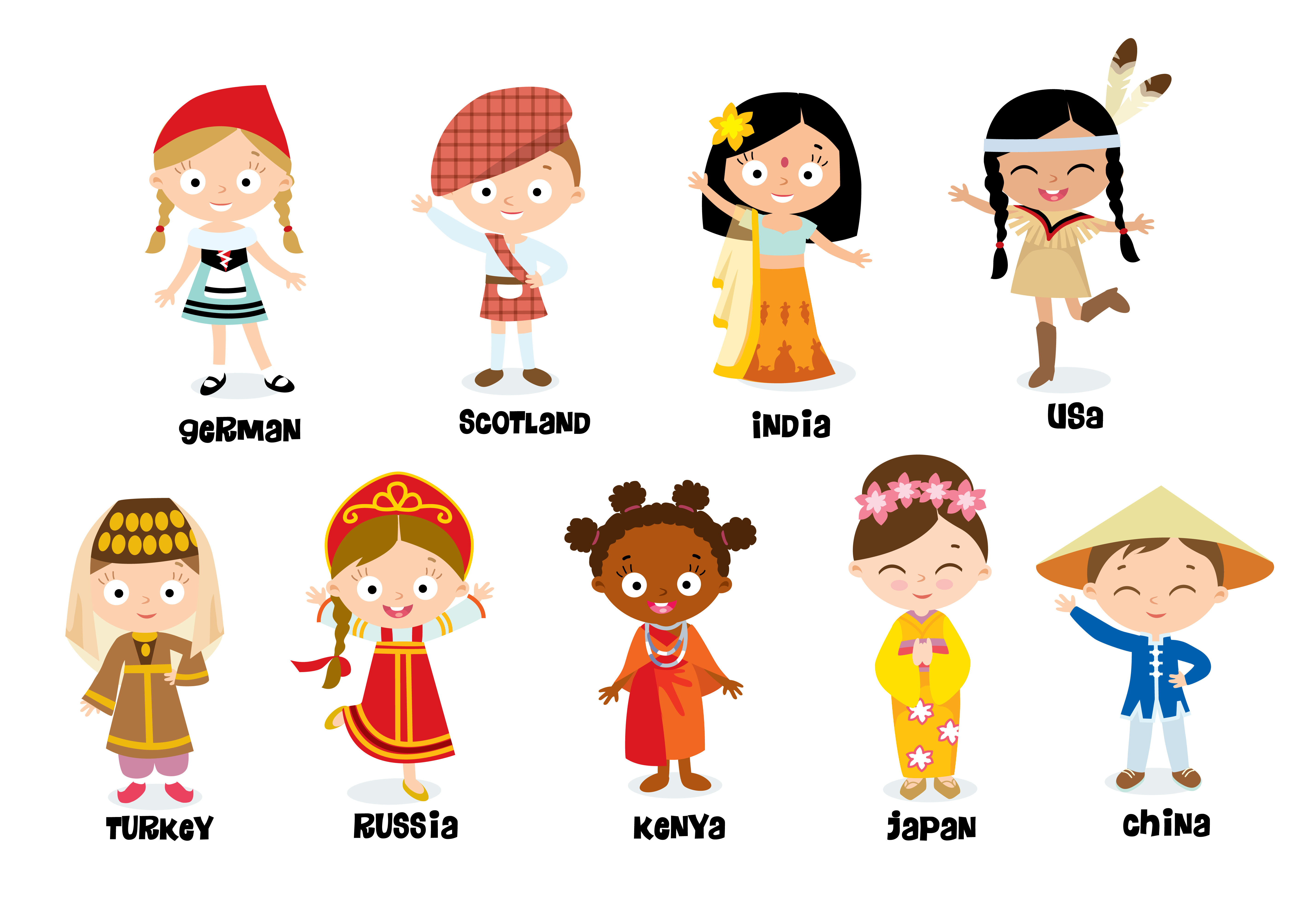Sound differentiation Normal Worksheets for Ages 6-8
4 filtered results
-
From - To
Enhance your child's auditory skills with our Sound Differentiation Normal Worksheets for Ages 6-8. These engaging, age-appropriate worksheets help young learners sharpen their ability to distinguish between various sounds. Perfect for development during the critical early years, our activities include fun exercises that cover consonant blends, vowel sounds, and more. Designed by education experts, each worksheet aims to strengthen listening comprehension and phonetic recognition, fundamental for reading and writing proficiency. Explore our vast collection and make learning an enjoyable and rewarding experience for your child. Boost their confidence and academic success with Kids Academy resources today!


Long vs Short O Reading Worksheet


Long and Short Vowel Sentences: Assessment Worksheet


OU and OW Words Worksheet


Long and Short Vowel A Spelling Worksheet
Sound differentiation, the ability to hear and distinguish between different sounds, is a crucial skill for children aged 6-8. For parents and teachers, fostering this ability is essential for several reasons.
First, effective sound differentiation is foundational for reading skills. Children need to recognize discrepancies between similar phonemes, such as 'b' and 'p' or 'd' and 't,' to decode words accurately. Struggling with sound differentiation can hinder their ability to read fluently and comprehend text, impacting their overall academic performance.
Second, sound differentiation supports children in developing clear speech patterns. When kids can accurately hear and pronounce distinct sounds, they are able to form words correctly and communicate more effectively. This clarity in speech improves social interactions and reduces misunderstandings, fostering better relationships with peers and adults.
Third, it enhances listening skills. Children who can differentiate sounds are more attuned to auditory information in various environments, which aids in following instructions and staying engaged in classroom activities.
Lastly, recognizing and addressing issues with sound differentiation early on prevents long-term academic and social challenges. Early intervention allows for strategies and tools— such as phonics games and auditory exercises—that help solidify these essential skills.
Thus, prioritizing sound differentiation is integral to a child's language development, literacy, and overall success.

 Assign to My Students
Assign to My Students





















